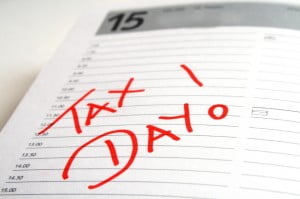Sometimes waiting to file bankruptcy is a better option for those wanting to keep their refund. Yet, it is possible to have your refund protected if it meets requirements depending on the state you reside. There is also the issue of being married and filing a joint return and wondering if the decision to file may affect your spouse.
In many cases, it may be best to wait and file bankruptcy after receiving your tax refund. Your refund should be used for meaningful purposes such as household needs and necessities for your family. Debtors often decide to use a portion of their refund to cover filing fees.
It is important to review your situation with an attorney, especially if you feel you need to file before receiving your refund such as facing foreclosure or eviction. Like other personal assets, your tax refund may be considered part of your bankruptcy estate. If you filed your tax return with your spouse and only you intend to file for bankruptcy, half of the refund may become part of the bankruptcy estate. Your spouse would be entitled to keep the other half if they are not part of the bankruptcy filing.
Because each situation is different, it is important to review your circumstances with a bankruptcy attorney prior to filing. If you decide to file and anticipate a refund, discuss options available that may help you protect it. This may include reviewing available exemptions at state and federal levels.
Reference: http://www.bankruptcylawnetwork.com/get-your-tax-refund-before-you-file-bankruptcy/
